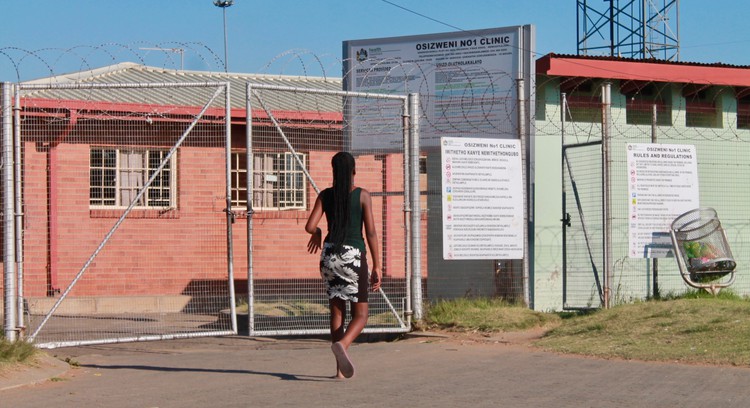People robbed of ARVs because of whoonga myth
No ingredients in ARVs help people get high
Rose* says she has been held up at knifepoint three times since August and each time robbed of her antiretroviral (ARV) medication.
Rose, who lives in Osizweni township Section A, Newcastle, is HIV-positive and has been on ARV treatment since 2014. She is 31 and has one child.
“I was robbed on 13 August, and again on 11 September and 10 October on my way back home from Osizweni clinic number 1 in Section A. But luckily I wasn’t robbed in November. My next date [to collect ARVs] is 2 January,” says Rose.
A drug user told GroundUp that he gets high on “whoonga” which has ARVs ground up in it together with rat poison, steel wool and dagga. But according to the KwaZulu-Natal Department of Health. laboratory results show that the active chemicals in whoonga are low grade residual heroin, cocaine and strychnine. “If ARVs are used it is merely to bulk up the product, just like the drug dealers would use Vim (household cleaners); asbestos or any other available chemical or drug,” the department states in an information pamphlet.
One antiretroviral, efavirenz, can cause unusual dreams but it is a temporary effect and usually unpleasant. It’s also possible that there’s a secondary market in ARVs for their intended HIV-treatment purpose.
“Since having been on my treatment I have never defaulted and have been living a healthy lifestyle. But I have now become fearful that I may find myself defaulting because of these rampaging drug addicts who have been targeting us, robbing us of our ARVs on our way from the clinics,” says Rose.
“Luckily, no lives have been lost during the attacks yet, but we are living in fear,” she says.
She says she has never reported the robberies to the police – “because of this stigma that is attached to being HIV-positive in our community”, she says. “I have never been comfortable to report at the police station. But I have recently been in touch with one of the members of Community Policing Forum who is my relative. She has promised to alert the local police.”
Victims say the robbers specifically demand ARVs during the attacks.
Eric*, a 35-year-old unemployed father of two, from nearby Madadeni township, says he has also been robbed twice of his ARVs. “I once reported my attack at the local police station, but I was given an attitude by one of the police officers at the charge office in front of other people. I felt very humiliated. I ended up leaving the charge office without even getting a case number.”
Spokesperson for the police in KwaZulu-Natal Lieutenant Colonel Thulani Zwane said they did not have any cases “related to robbery attacks against ARV users in Newcastle to date”.
Mzamo Zondi, KwaZulu-Natal provincial manager for the Treatment Action Campaign, said, “We know it is not all the police officers who have an attitude towards ARV users.” But Zondi encouraged victims to use the Mpimpa Hotline, where criminal activities can be reported anonymously.
Repeated attempts over the course of a week to get comment from spokesperson for the KwaZulu-Natal Department of Health Ncumisa Mafunda have been fruitless.
* Not their real names.
Support independent journalism
Donate using Payfast

Don't miss out on the latest news
We respect your privacy, and promise we won't spam you.
Next: Farm community demands homes promised over a decade ago
Previous: Westlake township residents get water one hour a day, while affluent neigbours have normal supply
© 2018 GroundUp.
This article is licensed under a Creative Commons Attribution-NoDerivatives 4.0 International License.
You may republish this article, so long as you credit the authors and GroundUp, and do not change the text. Please include a link back to the original article.

